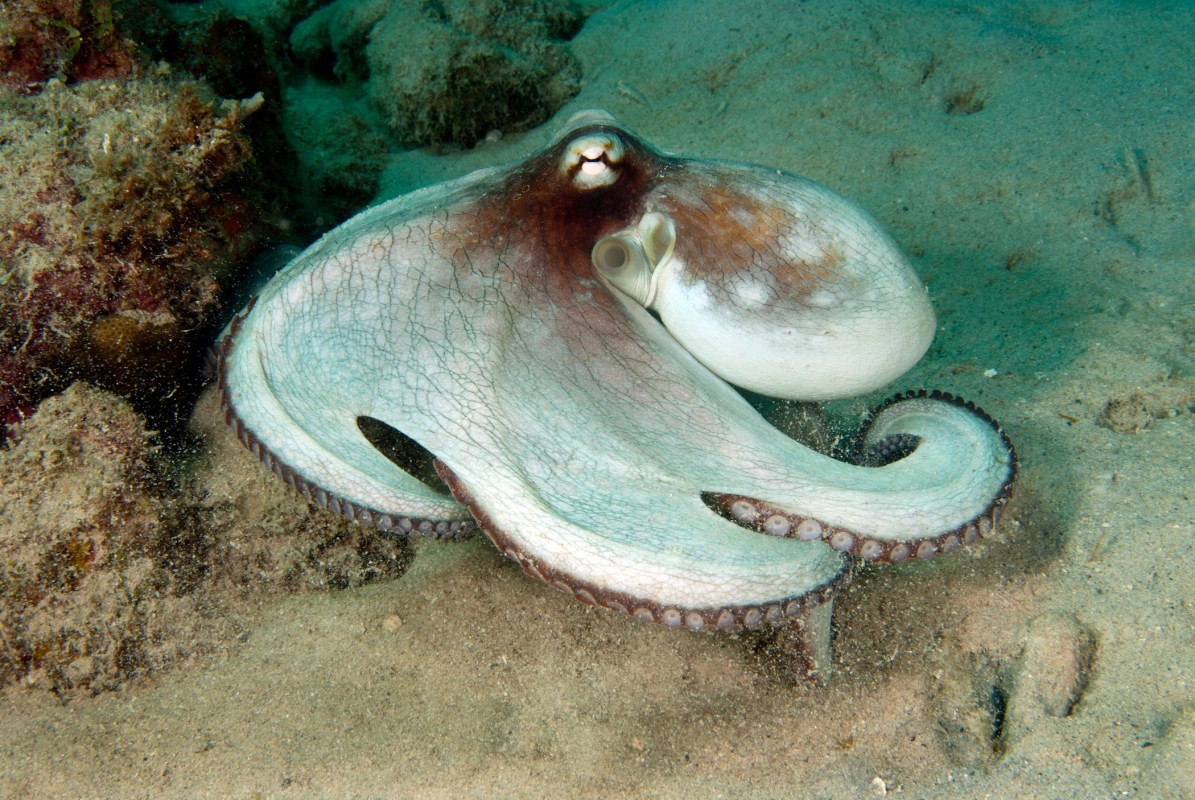It turns out octopuses react to the club drug molly in a similar fashion to the way humans do. A new study aimed at understanding octopus social behavior and the evolution of the animal’s brain gave octopuses ecstasy, and the results suggest that human brains and octopus brains may have some ancient similarities.
Two octopuses were placed in a tank while under the influence of MDMA, and the study, published in Current Biology, found that the two creatures spent more time together after absorbing the drug than they did sober. In other words, much like a human, an octopus becomes much more social and friendly on ecstasy. The study argues that if our brains can be activated by the same chemicals, then our brains must have something in common in their evolution.
“Even though octopuses look like they come from outer space, they’re actually not that different from us,” said Gül Dölen, the Johns Hopkins neuroscientist who co-led the study. Scientists hope that the discoveries from the ecstasy study could prompt further research into the parallels between human and octopus brains.
Thanks for reading InsideHook. Sign up for our daily newsletter and be in the know.


















